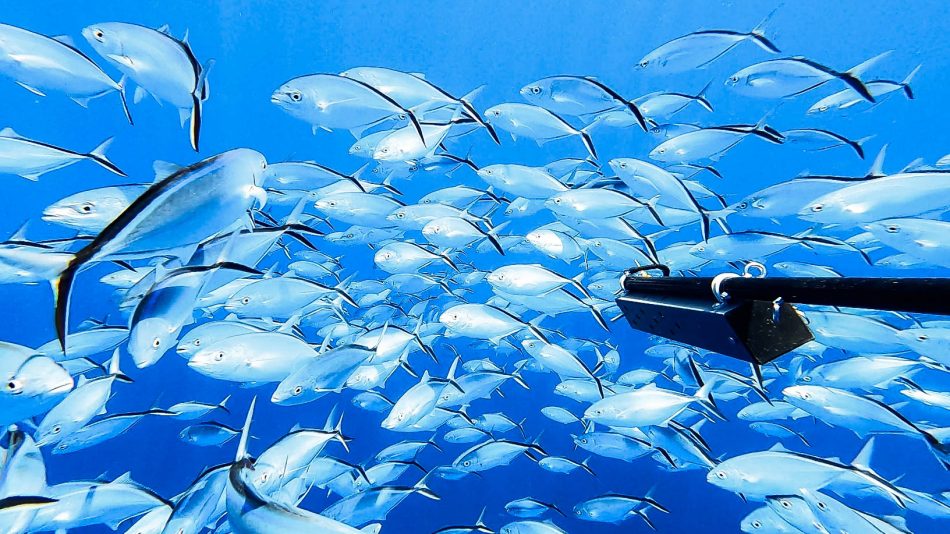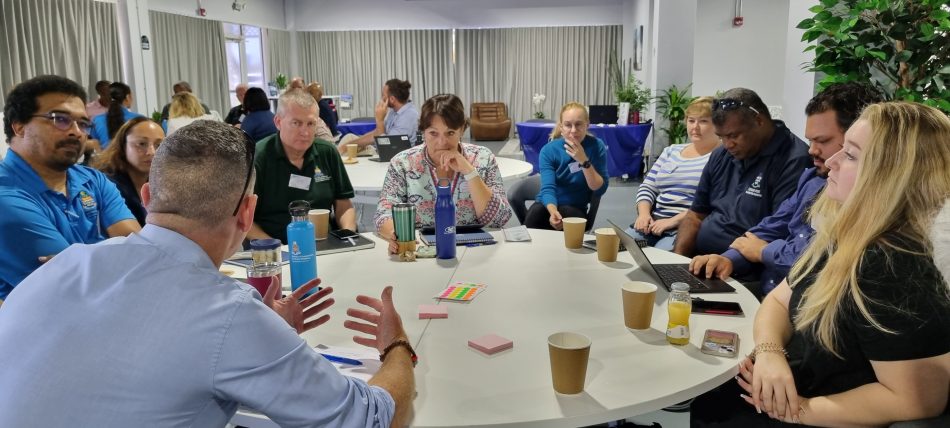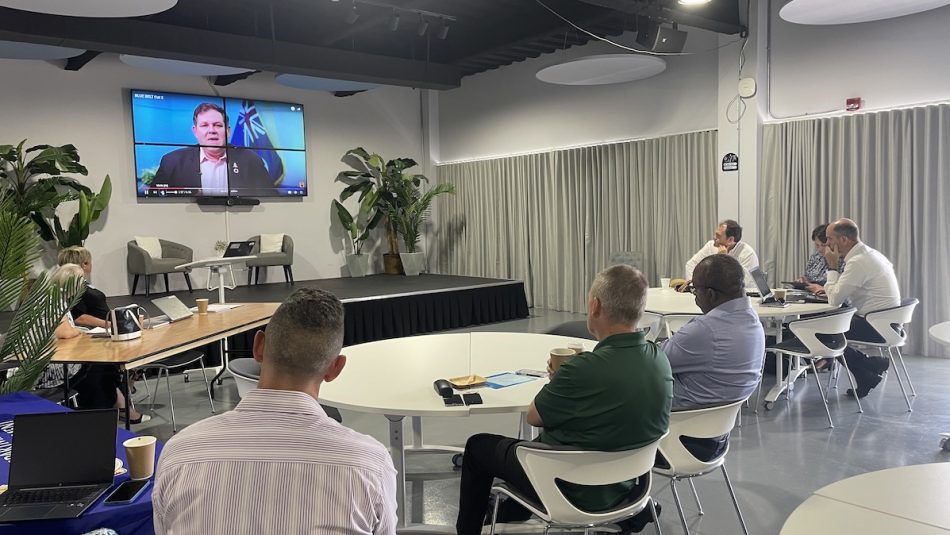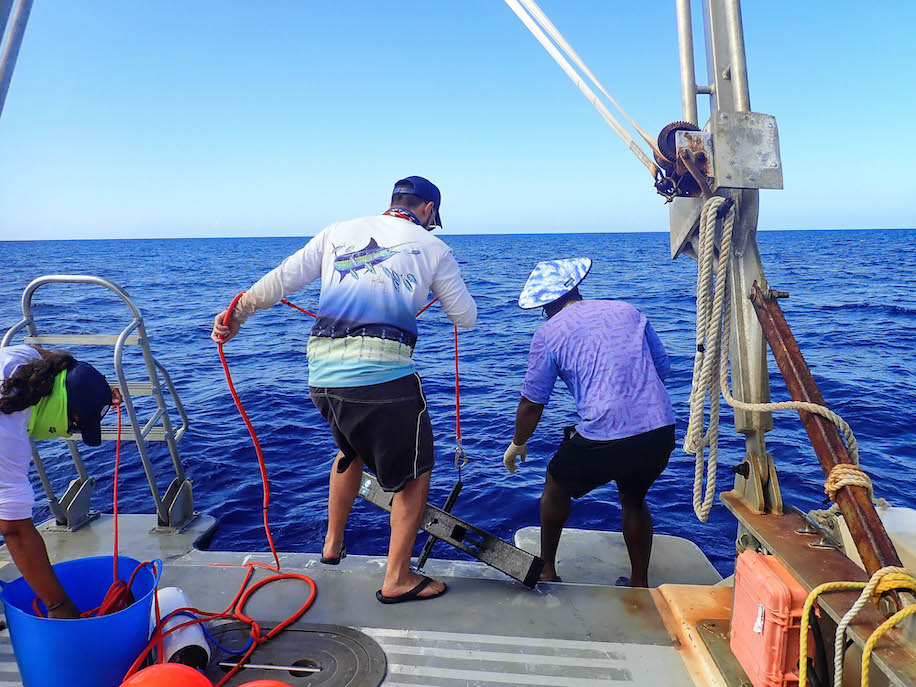Blue Belt expands in Caribbean, as Cayman Islands join UK’s flagship marine protection programme

The Cayman Islands has become the latest Overseas Territory to join the United Kingdom Government’s flagship Blue Belt Programme, helping to expand marine protection efforts across the Caribbean.
The announcement was made today after a two-day workshop where representatives from the Cayman Islands Government Department of Environment (DoE) and Ministry of Sustainability & Climate Resiliency (MSCR), the UK Government’s Foreign, Commonwealth & Development Office (FCDO), the Centre for Environment, Fisheries and Aquaculture Science (Cefas), the Marine Management Organisation (MMO), the Joint Nature Conservation Committee (JNCC), and stakeholders from across the Cayman Islands’ pelagic marine sector including the Cayman Islands Coast Guard, met to discuss the future ambitions and objectives of the Programme in the region.
The Cayman Islands, comprising the three islands of Grand Cayman, Cayman Brac and Little Cayman, is known for its incredible biodiversity. Located on the Cayman Ridge and bordered to the south by the Cayman Trench where the seabed plunges to over 7,000 metres, the islands are surrounded by a narrow coastal shelf which supports spectacular coral reefs. Home to a wide range of marine species, from sea turtles to Lemon sharks, these coral habitats are of huge importance both ecologically and economically.

The first Marine Protected Areas (MPAs) in the Cayman Islands were created almost 40 years ago. Today, nearly half of the Islands’ shallow coastal waters are designated as ‘no take zones’, protected by a network of MPAs which regulate fishing, some boating and water related activities.
Blue Belt Programme support will include work to protect the wider pelagic marine environment, which faces global and regional threats – from climate change to Illegal, Unreported and Unregulated (IUU) fishing. Support to the Cayman Islands will include:
- Undertaking a comprehensive review of fishing activity in the region to help inform management strategies.
- Developing satellite surveillance to support enforcement and explore alternative surveillance tools in the region.
- Exploring options for enhanced management of offshore natural resources, potentially including offshore MPAs.

David Rutley, Americas Minister with responsibility for the Overseas Territories commented:
“The UK is committed to preserving our planet’s most vital resources for the benefit of future generations, and our Blue Belt Programme is one of the most successful and large-scale marine conservation initiatives in the world today.
“The Cayman Islands are pioneers in protecting the environment, so this collaboration promises to be a gold standard in the sustainable management of our oceans.”
Hon. Wayne Panton, Premier of the Cayman Islands and Minister for Sustainability and Climate Resiliency, commented:
“The Cayman Islands has always been defined by our relationship with the sea. Over the past 40 years, the Cayman Islands Government has worked to develop a comprehensive framework of legislation and policy aimed at safeguarding the sustainable future of our islands’ unique marine and terrestrial environments. Currently, an impressive 48% of our nearshore coastal waters are protected through an enhanced marine protected area network. Even with protections, our unique marine and terrestrial environments are not immune from the threats of invasive, alien species and the impacts of global climate change. Further out at sea, beyond our coral reefs, human impacts of illegal fishing and pollution put our pelagic species and environments at risk.
The Blue Belt programme offers unique opportunities for the Cayman Islands to strengthen our governance and management frameworks, better understand and protect our marine biodiversity, manage human impacts on our marine areas, access compliance and enforcement assistance, and build capacity and ocean literacy. As part of global programmes like the Blue Belt we protect not just Cayman’s future but the world’s future. Just as our seafaring ancestors were citizens of the world our youth will be citizens of a more connected global economy and environment and we must do all that we can to leave them a homeland at least as good as our ancestors left us. The Blue Belt programme is one of the ways we will do that and I am proud that Cayman’s participation in the programme has now begun.”

Mrs Jane Owen, Governor of the Cayman Islands, commented:
“The commitment and ambition of Cayman towards conserving our marine environment is wonderful to see. I am delighted that local stakeholders and communities have joined together this week to begin implementation of the Blue Belt Programme. This will enhance our protection for the incredible biodiversity found in the water around our islands and bring lasting benefits to the marine environment and local communities for future generations”.
The Blue Belt is one of the UK Government’s flagship marine conservation programmes and is at the forefront of realising global ambition to tackle the threats facing the world’s oceans, including overfishing, species extinction, climate change and marine pollution.
The Cayman Islands is the third UK Overseas Territory located in the Caribbean to join the Blue Belt Programme, following the Turks and Caicos Islands in 2022 and Anguilla in 2023. Other Territories in the Programme are Ascension Island, the British Antarctic Territory, British Indian Ocean Territory, South Georgia & the South Sandwich Islands, the Pitcairn Islands, St Helena and Tristan da Cunha.
Currently MPAs across the Territories in the Blue Belt Programme cover over 4 million square kilometres, around 1% of the global ocean, making a major impact in safeguarding precious marine environments and resources, as well as helping to combat global ocean threats. The Programme supports the UK Government’s commitment to ensure 30% of the world’s oceans are protected by 2030.

Notes :
- The Programme also underpins some of the UK’s commitments in the 25 Year Environment Plan, the UN Sustainable Development Goals (SDG14), as well as the commitment to ensure 30% of the world’s oceans are protected by 2030.
- The Blue Belt has two sub programmes:
- The Blue Belt Ocean Shield: A programme to support UKOTs in improving awareness of human activities taking place within their marine areas. This enables UKOTs to ensure human activities comply with management measures, and helps to challenge issues such as Illegal, Unreported and Unregulated (IUU) fishing.
- The Global Ocean Wildlife Analysis Network (GOWAN): A global biodiversity and habitat monitoring network, using underwater cameras known as Baited Remote Underwater Video Systems (BRUVS) to improve understanding of marine ecosystems and inform management and protective measures.
- Blue Belt is delivered by two world-leading organisations – the Centre for Environment, Fisheries and Aquaculture Science (Cefas) and the Marine Management Organisation (MMO) on behalf of the UK Government. These organisations provide advice and assistance in applied marine science, management, technology, remote monitoring and enforcement to the Overseas Territories. It is funded by the Foreign, Commonwealth & Development Office (FCDO).
- For more information, visit: The Blue Belt Programme – GOV.UK (www.gov.uk)
- Please contact Judy Hurlston at judy.hurlston@gov.ky for any further information or for spokespersons for interview.





